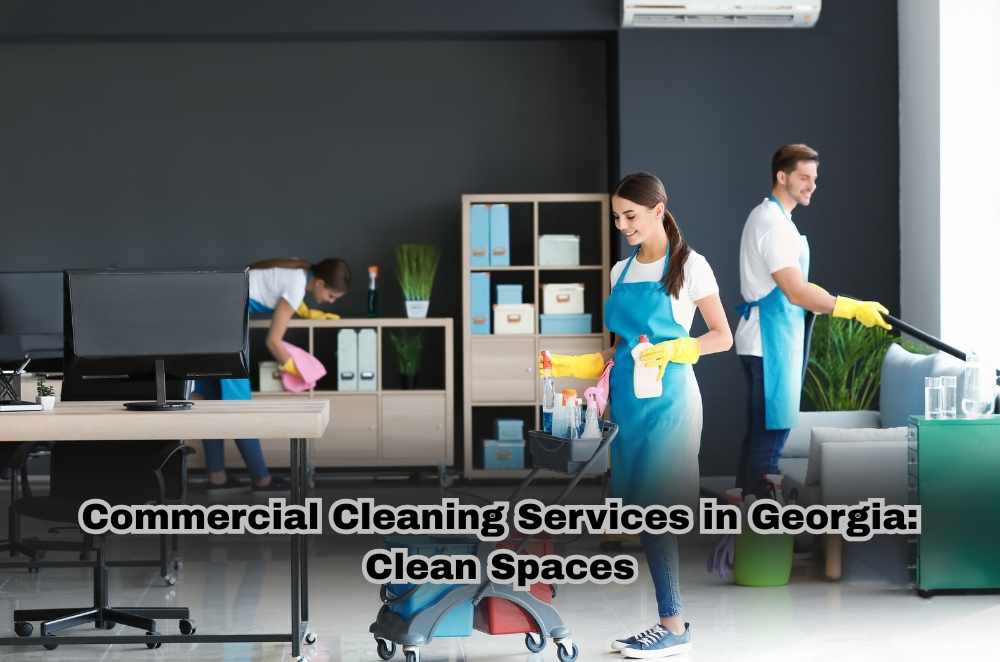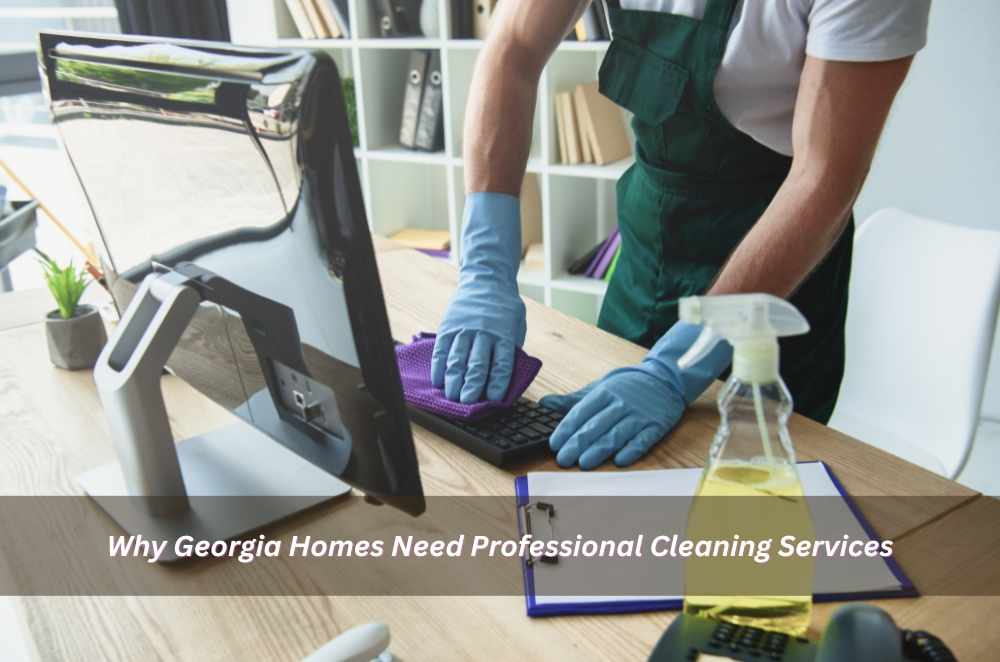
When you walk into an office building, what’s the first thing you notice? For many, it’s not the layout or branding. It’s the smell of fresh floors, the gleam on the glass, or the absence of dust and clutter. In short, you notice if the space is clean. And in Georgia’s fast-paced business hubs like Atlanta, workplace hygiene isn’t just cosmetic; it’s strategic.
Cleanliness signals professionalism. It shapes how clients perceive your brand and how employees feel about coming to work. And when that cleanliness is managed by trained professionals through commercial cleaning services, it goes beyond surface-level shine. It builds long-term trust and safety.
First impressions are made at the door
Let’s say a potential client steps into your Atlanta office. If the windows are smeared or the carpet has stains, the assumption isn’t just “someone forgot to clean.” It’s “this business doesn’t pay attention to details.” In commercial environments, appearance is part of the experience.
The same applies to employees. A study I read years ago showed that workplace cleanliness is directly linked to morale and productivity. And from personal experience managing shared spaces, it’s clear that clean common areas shape how respectfully people use them. Clean breakrooms, tidy restrooms, and sparkling lobbies lead to better daily habits across teams.
Here’s what visitors and staff tend to notice first:
The scent of the space — fresh, stale, or chemical-heavy
Visible dust on desks, baseboards, or light fixtures
Streaks on windows and smudges on glass doors
The condition of the floors, especially in entry areas
Whether the bins are emptied and surfaces wiped down
Even small details leave an impression. And often, they speak louder than you think.
Health, hygiene, and legal expectations
Beyond visual appeal, cleaning plays a crucial role in workplace health. Especially in post-pandemic Georgia, regular disinfection, air quality control, and waste management are no longer optional; they’re expected. Clean surfaces reduce the spread of viruses, protect immunocompromised staff, and limit sick days.
Federal guidelines outline safety responsibilities for employers, particularly in commercial settings. The official resources related to the cleaning industry provide cleaning best practices, chemical exposure limits, and employee protection frameworks. Staying aligned with those standards supports not only health but also compliance and reputation.
Atlanta’s climate: a hidden cleaning challenge
Georgia’s climate brings seasonal challenges that impact indoor environments. Humidity from summer storms can promote mildew. Spring pollen clings to vents and desk surfaces. Urban dust and foot traffic accumulate quickly in shared spaces.
That’s why tailored cleaning matters. Instead of standard procedures, workplaces benefit from regionally timed strategies. For instance, addressing HVAC buildup after pollen season, or increasing carpet extraction after a wet summer can prevent long-term wear and indoor air complaints.
What to look for in a quality cleaning partner
Not all janitorial services are created equal. In Georgia, where office environments range from corporate towers to coworking studios, cleaning needs vary widely. If you’re comparing providers, here’s what to prioritize:
Custom cleaning schedules that align with your hours and flow
Staff training and screening protocols
Clear service lists with transparent pricing
Experience in specialty spaces like clinics or eco-certified buildings
Reliable communication and reporting
Teams that embed quality into their routines tend to share insights, maintain strong oversight, and evolve with their workspace. Many also support clients through ongoing maintenance education, offering janitorial cleaning tips that can help office managers reinforce cleanliness between visits.

Real-world reminder: how small oversights lead to big problems
In large office buildings, it’s easy to miss certain spots during daily cleaning. Take stair railings, for example. Everyone remembers the elevator buttons or shared desks, but those handrails often slip under the radar. Especially during flu season, that kind of slip-up can lead to more people getting sick than you'd expect.
One scenario involved a shared workspace where several employees began experiencing symptoms around the same time. After reviewing routines and surface contact points, the cleaning team identified handrails as a neglected area. By updating rotation schedules and applying a structured deep cleaning checklist, the issue was addressed quickly. Illnesses declined, and overall air quality improved.
This illustrates how smart, proactive cleaning routines can prevent problems before they take hold, not just visibly, but in terms of occupant health and satisfaction.
Commercial vs. residential cleaning explained
It’s a common misconception that a clean house equals a clean office. But corporate and shared commercial spaces have very different needs. Here’s why:
Higher foot traffic means dirt, debris, and damage build up faster
Floor plans are larger and more complex
Unique surfaces require specialist care
Diverse waste sources demand managed disposal
Public health and safety regulations require documentation and consistency
Residential cleaning may rely on habit and convenience. In commercial settings, structured systems, trained staff, and documented workflows are essential.
Why Georgia businesses are investing in cleaner spaces
Across Georgia, business owners are doubling down on cleanliness. From accounting firms to creative agencies, the message is clear: clean spaces drive retention, morale, and compliance.
That investment is visible in smarter supply choices, stronger quality assurance programs, and deeper cleaning cycles. Whether the goal is passing audits, impressing clients, or protecting staff, the value of professional hygiene management is higher than ever.
Final thoughts: cleanliness drives confidence
Workplace hygiene isn’t a bonus feature. It is a foundation of modern business. A clean office environment reflects attention to detail, builds trust, protects staff, and supports productivity. And with the right commercial cleaning partner, these outcomes become part of the routine.
In Georgia’s competitive markets, the businesses that maintain consistently clean spaces also tend to retain clients and staff longer. If you’re still managing cleanliness reactively, this may be the time to change that. And the truth is, people notice the little things. When a space is consistently well-kept, it shows you take pride in how you run things — and that kind of care tends to stick with both clients and staff.










Write a comment ...